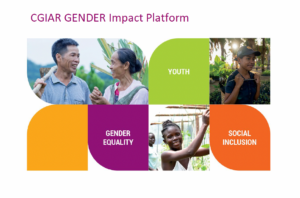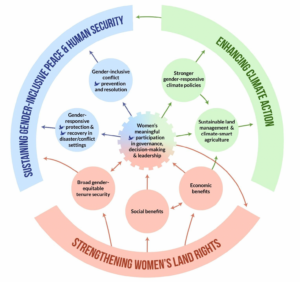In the context of climate change, climate variability has become a major issue in recent years in sub-Saharan countries. Climate information services (CIS) could be a vital resort for African producers to better manage climatic risks. This study aimed to identify CIS needs and analyze the most adapted dissemination channels while also determining factors that influence smallholder access. This was done with a gender lens where 1170 farmers (20% women) were surveyed from 11 regions in Senegal. Two probit regressions were performed. Results revealed that men and women have different needs for CIS, with 95% of women requesting information relating to the onset date of rainy season against 90% for men (p<5%). Similarly, 46% of women prefer rural radios as a CIS broadcast channel compared to 39% of men (p<5%). Also, the main factors influencing the access are ethnicity, area of residence, and farmers’ perceptions of the utility of CIS. Among women, the native status and the willingness to act against cli- mate change affect the access to CIS. Thus, to facilitate access to CIS for relevant decision-making, it remains important to capacitate farmers and to consider the producers’ organizations as plat- forms for CIS dissemination and trainings.
Authors: Ndeye Seynabou Diouf, Issa Ouedraogo, Robert B. Zougmoré, Mathieu Ouedraogo, Samuel Tetteh Partey & Tatiana Gumucio
To cite this article: Ndeye Seynabou Diouf, Issa Ouedraogo, Robert B. Zougmoré, Mathieu Ouedraogo, Samuel Tetteh Partey & Tatiana Gumucio (2019) Factors influencing gendered access to climate information services for farming in Senegal, Gender, Technology and Development, 23:2, 93-110, DOI: 10.1080/09718524.2019.1649790




